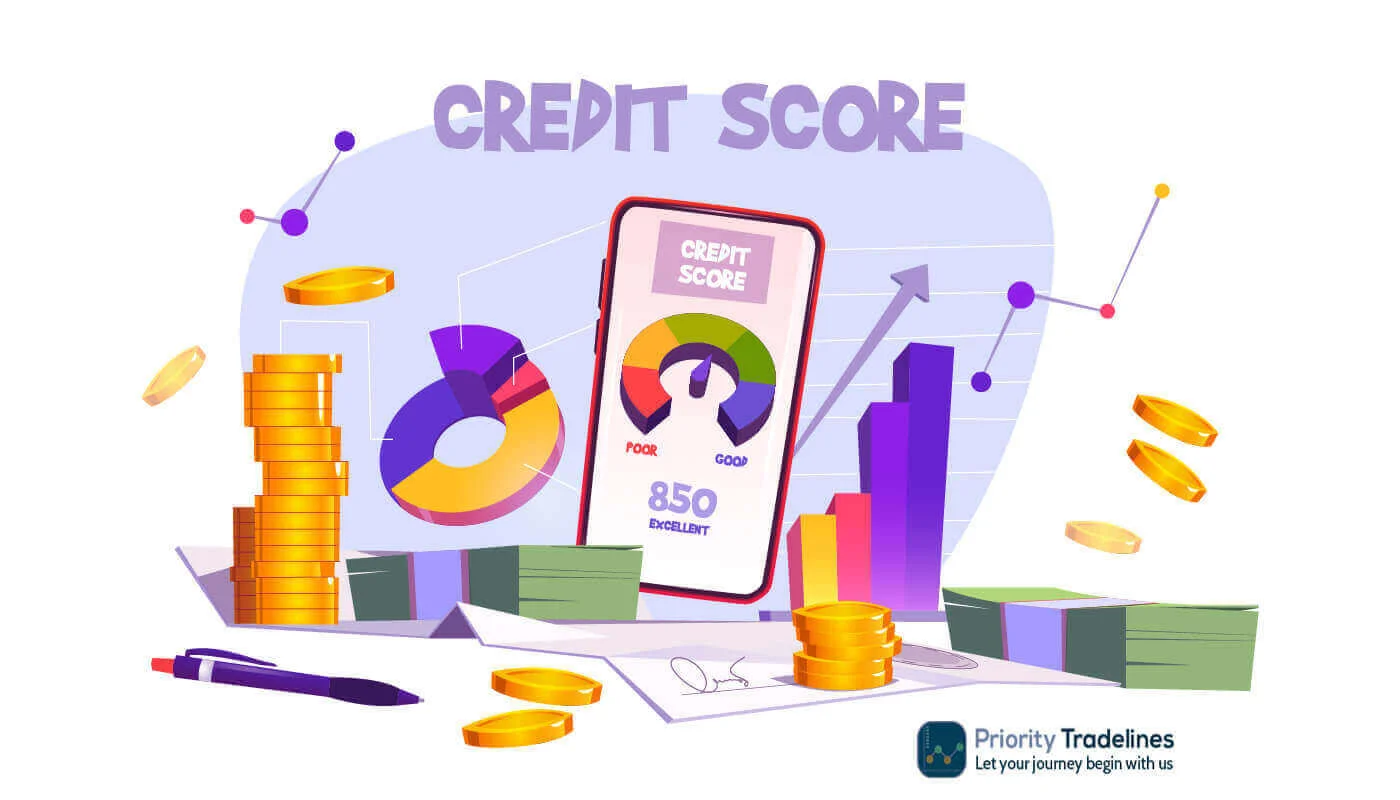The global financial system allows you to borrow money from banks, financial companies, and other lenders, given that you pay them back in time. Failing to do so will not only harm your credit score but will also reduce the chances of easy loan approvals or lines of credit. And even if you get approval, odds are that you might have to settle for higher interest rates than usual.
Thus, maintaining a good credit score is of utmost importance should you be looking for any sort of credit or loans in the future. And that’s what this post is all about as by the end of it, you’ll know exactly how to raise your credit score when you need money. But before I tell you that, let’s get familiar with what a credit score really is.
What is a credit score?
A credit score is a 3-digit number that reveals your creditworthiness to banks and other lenders to whom you’ve applied for a loan, credit card, or line of credit. Put simply, it’s how the lender would know whether or not you have good payment habits and whether you’d be able to repay in time.
A good credit score (above 700) will most likely get you approval in no time at the lowest possible interest rates. A poor score (below 550) on the other hand will have your application rejected straightway. Credit scores between 550 and 700 are also problematic but can be improved with certain efforts. Let’s take a closer look.
How to improve your credit score?
The credit score is calculated using a number of factors but mainly your payment history and the amounts of debt. The rest of the factors include the length of your credit account, credit mix of loans, credit cards, and mortgages, etc, and new credit accounts that you’ve applied for in recent times.
While defaulting on any of these aspects can hamper your credit scores negatively, there are a number of ways you can use to get it back up. Let’s get to it:
Check your credit report:
First things first, many times a credit score gets impacted only due to a false tag or some error on your credit report. So by keeping a close eye on your credit file, you can identify as well as rectify those errors or disputes if any well before you apply for a new line of credit.
Clear your debts:
Clearing the debts is certainly the quickest way of boosting your credit score without getting into a lot of fuss. Paying the outstanding dues will also help you shape up a healthy payment history which is quite important for when you’re in dire need of a loan.
Debt and payment history both go hand in hand and are equally important when generating your credit score. Neglecting on any of these areas can affect your credit score pretty significantly. So make sure to pay in time so as to maintain a good payment history.
Set up a payment reminder:
In our fast pacing lives, it may get really hectic to keep track of all the monthly payments, billing dates & deadlines, and their fulfillment in time even when you have all the money to spare. Here’s what you can do to avoid late payments and unnecessary charges:
• Make a note, alarm, or calendar entry of monthly bills.
• Set-up alerts to know when the billing date is near.
• Automate your payments.
Maintain a low credit utilization rate:
Credit utilization rate is yet another major factor used to calculate your credit score. A low credit utilization rate of 30% or less is what you should aim for so as to maintain/ increase your credit score. In simple terms, you should only use 30% of the total credit limit at any given time leaving about 70% of it as balance.
Low credit utilization allows you to make timely payments since the amounts owed won’t be too high.
Using a high balance alert feature is a great way of placing a temporary halt on your credit card should you feel that your credit utilization is exceeding the normal limit.
Make frequent payments:
Making multiple and frequent payments whenever you can is also an effective way of keeping the balance high and away from the burden of re-paying large sums on the billing date. By clearing your debts every now and then prior to the actual billing date, you can improve your credit score without having to wait for the billing cycle to end.
Do not close your old existing accounts:
Many people mistake their old existing accounts to be useless after clearing off the debts. Some also think that closing an old unpaid account with delinquencies will improve the credit score. However, that’s not the case. The older the account the more it impacts your overall credit score. So never close your old existing accounts; instead, try to clear off the debts.
Avoid applying for new credit thus hard inquiries:
Every time you apply for a new credit card, loan, or line of credit, a hard inquiry is made on your credit report which can affect your credit score although for a short term. Too many hard inquires can compromise your credit status as banks would think that you’re facing a financial crisis thus desperate to get credit. Such scenarios will never favor you especially when you need urgent credit. So avoid applying for a new credit card too many times when you don’t need it.
Consolidate your debts:
In case you have multiple outstanding dues, you can always take the debt consolidation loan from your bank to pay back the entire sum of all the debts. This way you’ll only have to take care of one single payment rather than handling them each separately.
Balance transfer credit card is another way of consolidating your debts. Although there is no interest rate on such cards, there may be a certain fee of 3-5% as the charges for a balance transfer.
Become an authorized user:
Buying a tradeline to become an authorized user on someone else’s card with good credit history is a quick way of boosting your credit score. Though it’s not a permanent solution, a tradeline can certainly give you the necessary credit boost in desperate times.
Increase your credit limit:
The credit limit can also be increased by contacting your bank or credit card company in scenarios wherein the balance is too low and credit utilization too high. Since it’s not possible to pay back the entire amount immediately, increasing the credit limit will cut the credit utilization to half so as to improve your credit score. Remember not to spend any penny from the new credit or else it won’t help.
Take-away:
Your credit score is based upon your entire credit history starting from the day you opened your first credit account. Therefore, it’s important to practice good payment behavior right from the start so as to avoid any issues at a later stage when you require an urgent loan or credit. That’s because once your credit score goes down, it can take months or years to raise it back again depending on your own credit record.
Priority Tradelines LLC has been a reliable name for people when it comes to improving their credit score. So, if you too are in need of money and seek expert advice, feel free to connect with us. We are available 24x7.



